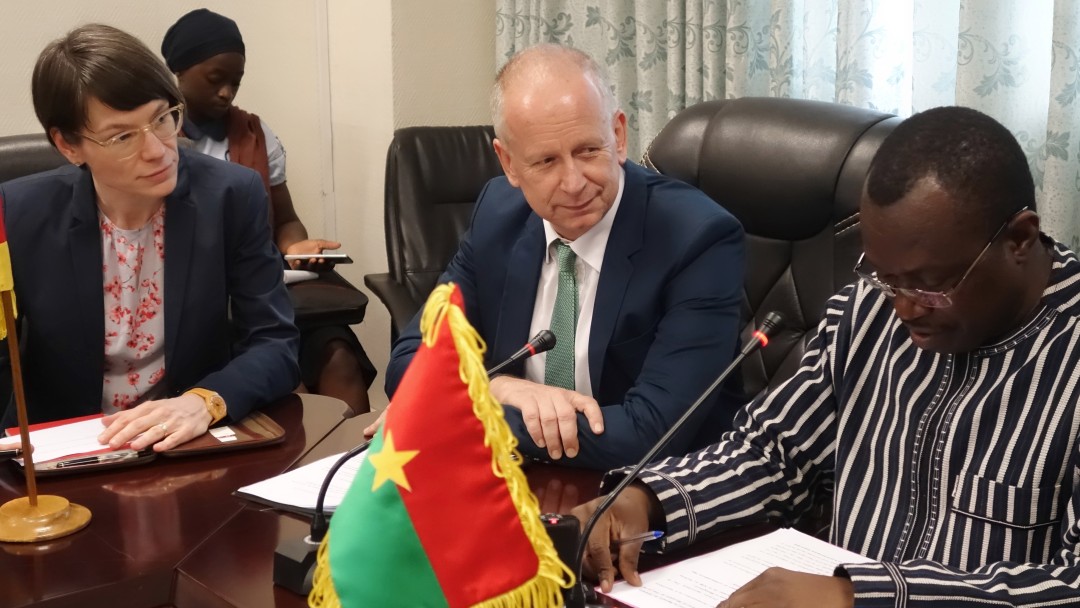News from 2019-07-23 / KfW Development Bank
Burkina Faso: The “land of the incorruptible” on the path to a networked future

On 19 July 2019, Lassané Kaboré, the Burkinabe Minister for Economic Affairs, Finance and Development, and Verena Le Chuiton, Director of the KfW Office, signed three financing agreements totalling almost EUR 40 million. The high-profile signing ceremony was held in Ouagadougou and was attended by the German Ambassador Ingo Herbert.
Burkina Faso has a great diversity of ethnic and religious groups – but tolerance and peaceful coexistence are valued and actively practised. German-Burkinabe cooperation is based on trust and flexible and creative adaptation to the situation of the local population. Since FC began in 1961, Germany has committed almost EUR 1 billion to projects in the “traditional” priority areas of agriculture and food security, water and sanitation and decentralisation. The contracts signed in the areas of solar energy, blockchain technology and water supply are evidence of FC's forward-looking approach to the country.
As part of the West African Power Pool (WAPP), KfW is providing EUR 20 million on behalf of the Federal Ministry for Economic Cooperation and Development (BMZ) for the construction of an innovative 35 MWp solar power station with a 4 MWh temporary storage facility. A solar park that will supply two million people with climate-neutral electricity is being built in Bobo-Dioulasso in the centre of the fragile Sahel zone. The project, implemented by the national grid operator Sonabel, will improve grid quality and compensate for voltage fluctuations. With the integration of a temporary electricity storage facility with a capacity of 4 MWh, this project is regarded as a pilot facility at a regional and international level and is expected to secure 20 per cent of Burkina Faso's total electricity demand in the medium term.
Another innovation in German-Burkinabe development cooperation is TruBudget. KfW is using blockchain technology that enables transparent, safe and traceable control of how donor funds are used. This is important in a country like Burkina Faso which has a high proportion of externally financed investments and a large number of donors. As part of the Digital Africa initiative, EUR 2.5 million will be used to support the roll-out of TruBudget as a national development cooperation instrument for all donor-financed projects. Goal: to reduce transaction costs, improve the transparency and efficiency of project implementation and strengthen local governance and administrative structures.
“Traditional” development cooperation is the topic of the third agreement signed. EUR 17 million will be used to build or rehabilitate urban drinking water and sanitation facilities in twelve cities in the south-west of the country. The project will affect nearly 50,000 people in total.
In conclusion, Lassané Kaboré said: “I welcome Germany's strong and friendly commitment to support us in strategically important sectors such as water and energy supply as well as financial governance. The three projects correspond to the National Development Plan PNDES and thus to the priorities of the Burkinabe government.”

Share page
To share the content of this page with your network, click on one of the icons below.
Note on data protection: When you share content, your personal data is transferred to the selected network.
Data protection
Alternatively, you can also copy the short link: https://www.kfw-entwicklungsbank.de/s/enzBWrMC.CCDA
Copy link Link copied